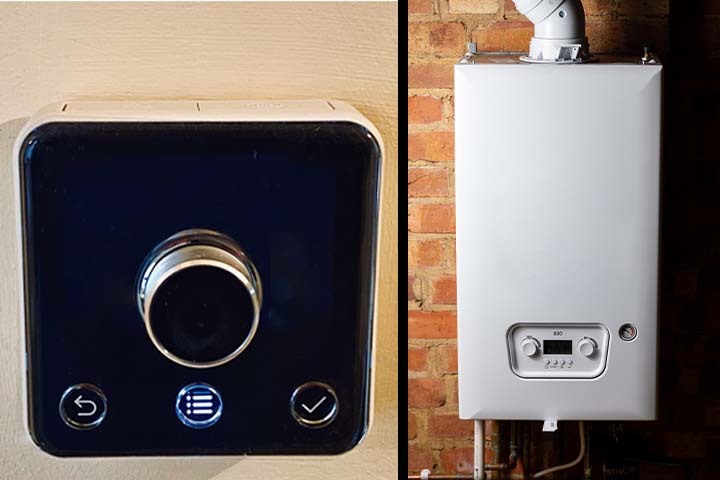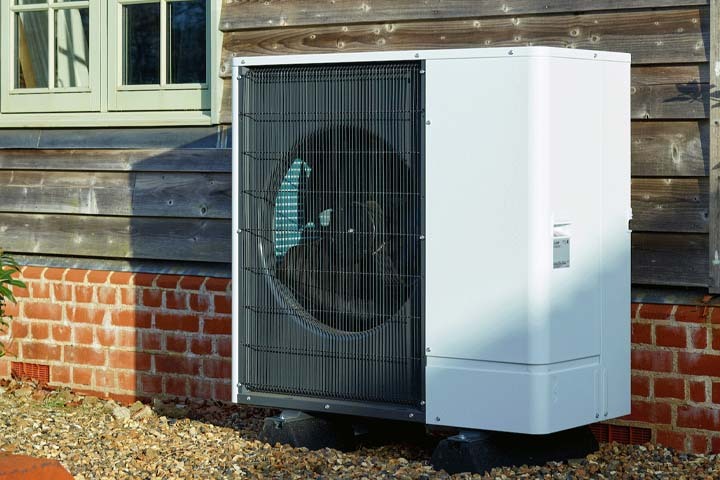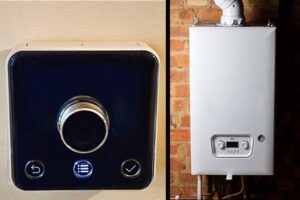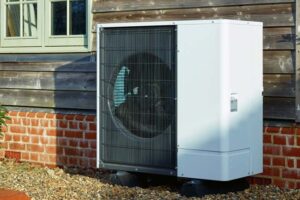Table of Contents
With the coldest ever temperature of -27.2 degree Celsius recorded in winters, living conditions in Scotland seems quite challenging. Without an efficient & working heating system like boilers, nobody can stay in this state during winter. However, its cost is not within the budget of many Scottish residents.
Not just that, there are several homes that use outdated boilers that break down frequently. On top of that is non-condensing boilers which take a lot of energy and results in less heat- high energy bills at the end. Many households continue paying high energy bills without getting towards the root cause – the old tired boiler which needs urgent replacement.
The good news is, homeowners or private tenants whose household claim benefits can replace their old boiler for free. These boiler grants can help reduce heating costs by installing a new, efficient boiler. In this guide, you’ll find boiler grant options in Scotland, and application requirements.
What Boiler Grants Are Available in Scotland?
If you live in Scotland and need a new boiler for free, two grant options can help: the ECO4 Scheme and the Boiler Upgrade Scheme (BUS). Both schemes help make heating more affordable, but each has different funding limits and scope. Here’s a simple breakdown and comparison of what each scheme offers.
1. ECO4 Scheme
The ECO4 Scheme, or the Energy Company Obligation, is a government-backed scheme that replaces old & inefficient boilers. It helps low-income households who receive government benefits make their homes more energy-efficient. The ECO scheme has been helping people in Scotland since 2013, especially since heating costs can get high during the winter.
Main Points of the ECO4 Scheme
- No Limit on Funding: ECO4 offers unlimited funding. Free boiler with no transportation charges and zero installation cost.
- Supports Low-Income Households: ECO4 focuses on people who receive certain government benefits.
- Includes Other Energy-Saving Upgrades: The scheme can also help with home insulation and heat pumps if your property has no gas metre.
Why ECO4 Could Be a Good Fit
With no limit on the grant amount, ECO4 can cover a full boiler replacement cost, making your home more energy-efficient. This can lead to a massive annual savings in terms of energy bills. However, this grant is mainly for old properties with low-EPC (usually below D) and people living in fuel poverty.
2. Boiler Upgrade Scheme (BUS)
The Boiler Upgrade Scheme (BUS) is another similar grant in Scotland, focusing on eco-friendly heating. This grant makes a free upgrade to your old inefficient or broken boilers. BUS can also support the installation of heat pumps, which use renewable energy and reduce pollution.
Main Points of the Boiler Upgrade Scheme (BUS)
- £5,000 Grant Limit: BUS provides up to £5,000 to help cover the cost of installing a new, energy-efficient boiler.
- Focus on Renewable Energy: The BUS grant aims to switch from fossil-fuel heating systems to more sustainable options.
- Flexible Eligibility: Unlike ECO4, BUS is available to more people, including middle-income homeowners.
Why BUS Could Be a Good Fit
The BUS grant makes it affordable to upgrade boilers that lower your energy use. Although it has a £5,000 limit, this grant still covers a big cost, and it’s open to more households than ECO4. Those who are disqualified for ECO4 can get a free boiler under BUS.
ECO4 vs Boiler Upgrade Scheme (BUS)
Here’s a quick comparison of ECO4 and BUS how they differ:
Feature | ECO4 Scheme | Boiler Upgrade Scheme (BUS) |
Funding Limit | No limit | £5,000 per household |
Target Group | Low-income households | Available to more people, including middle-income households |
Heating Systems Covered | Old non-condensing boilers or heating systems installed before 2005 | Inefficient & old broken heating systems |
Other Upgrades | Includes insulation, heat pumps with solar panels, and central heating grantsetc. | Focuses mainly on heating upgrades such as boilers and heat pumps |
Application Process | Can be longer due to income checks | Simpler for households not on low income |
Choosing the Best Grant Option
- For Low-Income Households: ECO4 might be better, as it offers unlimited funding and helps cover a full heating & insulation upgrade. Not just that, you can get free solar panels with heat pumps if your property has no gas metre.
- For Eco-Friendly Heating: BUS is a good choice if you do not meet ECO4 eligibility criteria. While it’s capped at £5,000, boiler grants under BUS cover a large part of the cost and are comparatively easier to qualify for.
Who Can Apply for Boiler Grant?
In Scotland, boiler grants are usually available to those whose households receive benefits. Grants often target people with older, inefficient non-condensing boilers older than 15 years. Homeowners, or tenants with landlord permission can apply if they meet certain criteria. Eligibility may vary, so it’s important to check the requirements before applying.

Eligibility Requirements for Boiler Grants
To qualify, you need to meet certain requirements based on your income, benefits, or household situation. Common eligible benefits include:
- Universal Credit
- Pension Guarantee Credit
- Pension Savings Credit
- Working Tax Credit
- Child Tax Credits
- Income-based Job seeker’s Allowance (JSA)
- Income-related Employment & Support Allowance (ESA)
- Income Support Allowance (ISA)
Sometimes, the age of your boiler and home energy efficiency rating will also be considered. Also, your home EPC rating plays a significant role to qualify you for free boiler replacement. Only those homeowners whose property’s EPC is below D can apply. Moreover, the property should not be in social housing, and only privately rented properties are eligible.
Documents You Need for Application
Prepare documents showing proof of income, benefits, and home ownership or tenancy. Required documents may include:
- Benefit letter
- EPC certificate
- Proof of home ownership
- Tenancy agreement for private tenants.
How to Apply for a Boiler Grant
Applying for a boiler grant is straightforward. First, check your eligibility using an online tool or contact an approved installer like Free Boilers Grants. Next, receive a call from a grant expert who will double check your eligibility and guide you further. He will submit your grant application for you with copies of required documents.
What Happens After You Apply?
After you apply, you’ll receive a confirmation email or call from the engineer to schedule a site survey. The professional surveyor will take necessary pictures of your old heating system and old insulation. Based on that, your grant application will be approved and you can get free home insulation too.
The Installation Time
If approved, an installer will visit your property after scheduling a suitable time to replace your old boiler. They’ll inform you about the time and date of the installation. The process is usually quick, and they may complete the installation within a day. After installation, they’ll check that everything works properly and give you some tips for maintenance.
Common Mistakes to Avoid in the Application
Double-check your application to avoid missing any information or documents. Submitting incomplete forms can delay the process. Ensure all personal and income details are correct and up-to-date. If unsure about any step, contact the grant provider for help.
Important Tips to Keep in Mind
- Start the application early, especially before winter when demand is higher. Usually, early-October is the best time.
- Review your eligibility requirements to ensure you meet the criteria and avoid time-wastage.
- Keep all documents organised and accessible for a smoother application process.
Conclusion
It is advisable to apply for a boiler subsidy in Scotland as it will minimise heating expenses. With a few easy steps, from assessing your eligibility to making the last installation, you can get a more efficient boiler at home. People residing in Scotland can also have new boilers through grant schemes which enable one to save on electricity as well as warm their house.
Frequently Asked Question
The ECO4 Scheme set up is intended for the low income sector of the society and especially for those who are receiving government support or are on low income.
Yes, you can apply to various grants simultaneously to where you meet eligibility criteria. The reasons for the grants are to reduce your energy bills and tackle climate change.
No. The BUS scheme offers a maximum of £5,000 which is assistance towards the cost so it won’t be full price.








